Dysphagia/Swallowing Disorder or Difficulty
What is Dysphagia/Swallowing Disorder or Difficulty? Dysphagia means swallowing difficulty or disorder and is usually caused by problems with nerves or muscles in the mouth, throat or food pipe (esophagus). Dysphagia comes from the Greek root word dys which means ‘difficulty or disordered”, and phagia meaning “to eat”. Dysphagia, if left untreated, can cause aspiration…
Read MoreDysarthria
What is Dysarthria? Dysarthia (sometimes called a motor speech disorder) can occur following a brain injury which affects the nerves and muscles that are used in speaking. Both children and adults can have dysarthria. Causes can include stroke, head injury, cerebral palsy, muscular dystrophy, ALS, and other medical conditions. A child or adult with dysarthria…
Read MoreDevelopmental Delay
What is Developmental Delay? Developmental delay means that there is a significant, ongoing delay in a child’s development. A child is diagnosed with developmental delay when cognitive, motor, and/or speech and language skills do not meet the developmental milestones for particular actions and ages, such as crawling at 6 months of age or walking and…
Read MoreDementia
What is Dementia? Dementia is an acquired progressive condition that affects many areas of cognitive function and has a major impact on a person’s ability to communicate with others. Alzheimer’s disease is the most common form of dementia caused by plaques (deposits of protein fragments) in the brain, but there are other forms which affect…
Read MoreCognitive Skills/Executive Functioning
What is Cognitive Skills/Executive Functioning? Cognitive skills are the skills that we use to learn and process information. These include attention, reasoning, short and long-term memory, perception, and executive function. Executive functioning refers to cognitive or thinking abilities that are responsible for initiating, planning, maintaining, and inhibiting thoughts and behaviours. These skills include: working memory…
Read MoreChildhood Apraxia
What is Childhood Apraxia? Childhood apraxia of speech (CAS), also called dyspraxia, is a motor speech disorder. Children with CAS have difficulty planning the highly coordinated motor movements required to produce clear speech. This difficulty happens at the brain level where planning the movement of the body parts needed to produce speech (i.e., tongue, lips,…
Read MoreCleft Lip or Palate
What is Cleft Lip or Palate? A child is born with a cleft lip and/or cleft palate when the structures of the lips, nose, or hard or soft palate do not fuse in an embryo. This results in openings in the bones or muscles of the mouth and nose. There are different kinds of clefts. …
Read MoreAutism Spectrum Disorders (ASD)
What is Autism Spectrum Disorders (ASD)? Autism Spectrum Disorder or ASD is a complex developmental disorder that affects a child’s development. Characteristics of ASD include difficulty with developing social communication and social interaction skills, particularly in understanding and using nonverbal communication. Persons with ASD also exhibit restricted and repetitive behaviours and interests. ASD affects 1…
Read MoreArticulation of Speech/Speech Sound Disorder
What is Articulation of Speech/Speech Sound Disorder? Speech sound disorders refer to difficulties a person may have producing specific sounds of speech (articulation of speech) and/or speech sound patterns (phonological disorders). When a child does not say speech sounds at an expected age, he/she is said to have speech sound delay. Typically, children produce the…
Read MoreApraxia/Dyspraxia
What is Apraxia/Dyspraxia? Apraxia is a general term that describes difficulties moving parts of the body. Apraxia of speech (AOS), sometimes called Acquired AOS to distinguish it from Childhood Apraxia of Speech, is a neurological disorder that may develop as a result of a stroke or a brain injury. In AOS, the injury happens to…
Read More